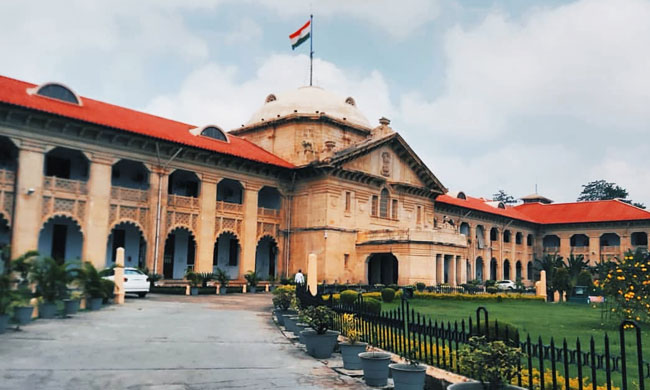Radhika Mittal
In a significant legal development, the Allahabad High Court has ruled that live-in partners can indeed be charged under dowry death laws, thereby expanding the scope of these provisions to encompass relationships that are not formally recognized by marriage. This ruling comes in the wake of a case involving Adarsh Yadav, who had sought to dismiss charges against him related to the dowry death of his live-in partner.
Background of the Case
The case in question centers around the tragic circumstances surrounding the death of a woman who had been living with Yadav in a live-in relationship. The victim had previously been married to one Rohit Yadav, but according to state counsel, she was divorced before entering into a relationship with Adarsh Yadav. The prosecution alleged that the victim faced harassment from Yadav regarding dowry demands, which ultimately led to her untimely death.
Yadav’s defense argued that since there was no formal marriage between him and the deceased, the provisions of dowry death under Section 304-B of the Indian Penal Code (IPC) could not be applied. They contended that without a legal marriage, the allegations of dowry harassment were unfounded.
Court’s Observations
Justice Raj Beer Singh, presiding over the case, firmly rejected this argument. He stated that to establish an offense under Section 304-B (dowry death) and Section 498-A (harassment for dowry) of the IPC, it is sufficient to demonstrate that the victim and her partner were living together as husband and wife at the relevant time. The court emphasized that it is irrelevant whether or not a legal marriage existed between them.
In his observations, Justice Singh noted, “In order to attract the provisions of Section 304-B and 498-A IPC, it is sufficient to show that the victim and the accused husband were residing as husband and wife at the relevant point in time.” He further clarified that even if it were assumed that the deceased did not qualify as a legally wedded wife, substantial evidence indicated that she and Yadav were cohabiting as a couple.
Legal Implications
This ruling sets a precedent by affirming that live-in relationships can fall under the purview of dowry laws. The court’s decision underscores the evolving nature of family law in India, recognizing various forms of partnerships beyond traditional marriages. It sends a clear message that domestic abuse and dowry-related harassment will not be tolerated, regardless of marital status.
The court also pointed out that questions regarding the legality of their relationship would be addressed during trial. This means that while Yadav’s defense may argue about the legitimacy of their union, it will ultimately be up to the judicial process to determine whether he can be held accountable under existing laws.
Conclusion
The Allahabad High Court’s ruling marks a pivotal moment in Indian legal history by reinforcing protections against dowry-related crimes for individuals in live-in relationships. As society continues to evolve, so too does its legal framework, adapting to encompass diverse familial structures. This decision serves as a reminder that all forms of domestic partnerships are subject to scrutiny under laws designed to protect individuals from exploitation and abuse.
Bench: Justice Raj Beer Singh

